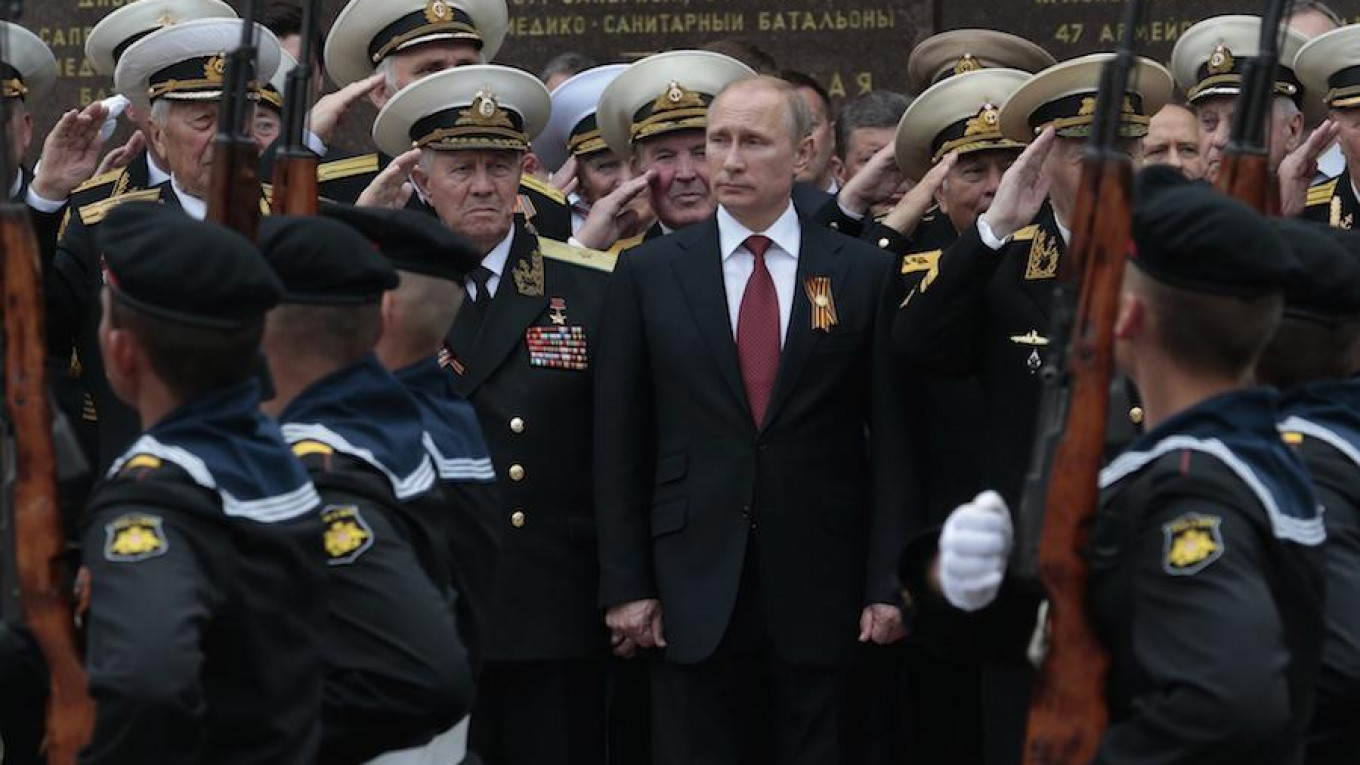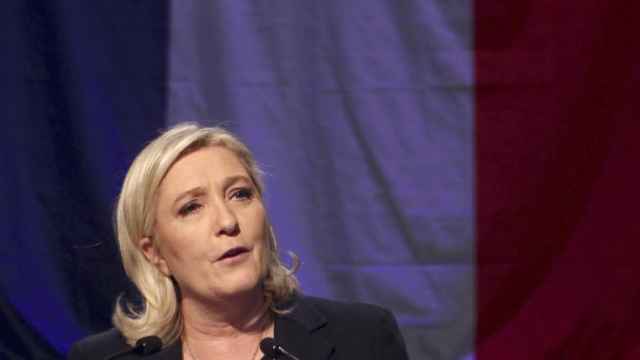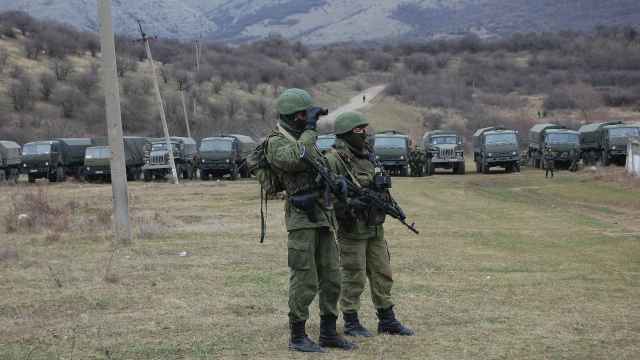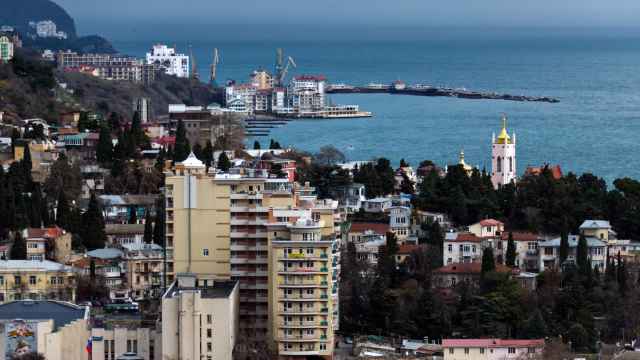It was 2014, and Vladimir Putin was in poor form.
His approval rating had fallen by 20 percent three years earlier, when he announced he would return to the Kremlin after four years as prime minister. In Moscow, the largest street protests since the 1990s erupted. Putin successfully cracked down on them, but, after that, his rating still hovered around 60 percent — a historic and unacceptable low.
Putin’s romance with the Russian nation was fizzling. The reason was simple: A significant portion of the public was angry with his return to the country’s top office. They believed modern Russia had abandoned its attachment to the concept of eternal leadership. And they were bitterly disappointed.
Putin knew he had to act. But in March 2014, the annexation of Crimea came as a mere contingency plan. Had Ukraine not overthrown its pro-Russian president, Viktor Yanukovych, it might never have happened. No one could have imagined orchestrating the annexation a few months earlier.
Politically, the annexation of Crimea was a major risk. It led to Russia’s isolation on the global stage and turned the president into a pariah. Russia was kicked out of the G8. Sanctions imposed by the West hurt the country’s economy, and most other states declined to recognize Crimea as part of Russia. Around the globe, Moscow’s actions were regarded as pure aggression, the first armed seizure of foreign land in Europe since the end of World War II.
But the Russian president certainly has a survival instinct. The annexation of Crimea solved the trust issues that he had experienced with domestic audiences since 2011. His approval rating skyrocketed to an all-time high and since spring 2014, it has stood at around 80 percent.
But Putin achieved more than just securing his personal grasp on power. The Crimean annexation took root deep in the national consciousness. The “return of Crimea” is now regarded as one of the nation’s greatest achievements, second only to the Soviet victory over the Nazis, according to the independent Levada Center pollster.
The “Crimea consensus” goes beyond rational interests. Russians are aware that they are suffering financially as a result, but they are willing to tighten their belts. Three years after the fateful event, Russians are more certain than ever that the nation has benefitted from Crimea’s return, according to the VTSIOM pollster. Significant opposition has only been noted in the large urban centers of Moscow and St. Petersburg, where around 20 percent disapprove of the annexation.
There are clear reasons for the Russian public’s fawning over the peninsula’s “return.” It marks a historic development — the end of the long and traumatic post-Soviet transformation. The annexation has brought the project of a democratic Russia, launched in 1991 under Boris Yeltsin, to a conclusion.
Three years later, this is even more evident than before. For Russians, the annexation is not simply proof that “Crimea is ours,” explains Alexei Levinson of the Levada Center. “It’s visible proof that Russia has restored its status as a superpower.” Crimea now signifies that Russia is once again a global player on par with the U.S. — much like the USSR was 30 years ago.
This narrative of “restoring power” treats the last 25 years of Russian political history as a disease. Now it has been cured.
“For Russians, the annexation of Crimea healed the trauma of the Soviet empire’s disintegration, best described by Putin as ‘the greatest geopolitical catastrophe of the 20th century,’” Levinson says. “Now, the world order is back to normal.” In Russia’s eyes, this world order resembles the Cold War era: two global superpowers shaping the world.
But this restored national pride cannot rely solely on the symbolic achievements of the recent past. Since Russia is once again a global player, it must now act on the global stage.
Vladimir Putin is on a roll. Not only has the Crimea gambit paid off, but Russia’s superpower status has been confirmed and sealed by Donald Trump’s unexpected victory in the U.S. presidential election. With a like-minded leader in the White House, Putin now feels he is the “half-emperor of the world, and his reelection in March 2018 has global significance,” says Gleb Pavlovsky, a political analyst. Russia’s voice in global affairs is now much stronger than before.
For Putin and his new Russia, the time for political adventurism has passed. But the time for political – and military – expansion has just begun. Now, Russia thinks of itself as the reincarnation of its own past. And it will act accordingly.
A Message from The Moscow Times:
Dear readers,
We are facing unprecedented challenges. Russia's Prosecutor General's Office has designated The Moscow Times as an "undesirable" organization, criminalizing our work and putting our staff at risk of prosecution. This follows our earlier unjust labeling as a "foreign agent."
These actions are direct attempts to silence independent journalism in Russia. The authorities claim our work "discredits the decisions of the Russian leadership." We see things differently: we strive to provide accurate, unbiased reporting on Russia.
We, the journalists of The Moscow Times, refuse to be silenced. But to continue our work, we need your help.
Your support, no matter how small, makes a world of difference. If you can, please support us monthly starting from just $2. It's quick to set up, and every contribution makes a significant impact.
By supporting The Moscow Times, you're defending open, independent journalism in the face of repression. Thank you for standing with us.
Remind me later.







